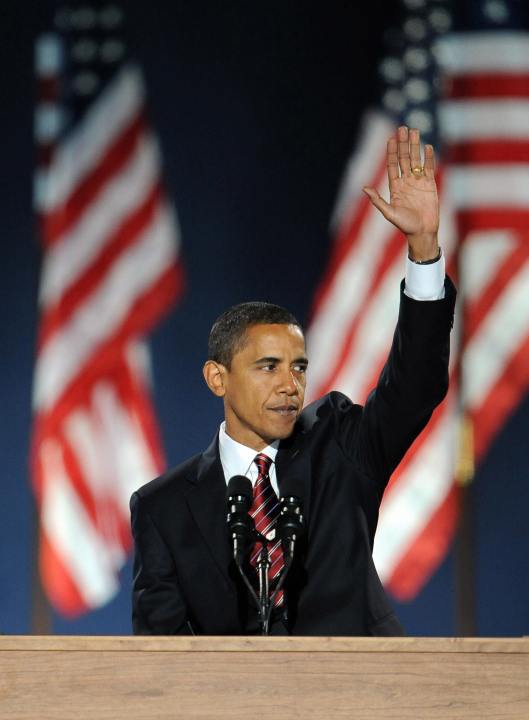 Barack Obama’s win yesterday signals, like nothing else could, that “America is back” – and back to deal with many of the world’s foreign policy challenges. After eight years of trying relations with the Bush administration, many European leaders have been looking forward to this day.
Barack Obama’s win yesterday signals, like nothing else could, that “America is back” – and back to deal with many of the world’s foreign policy challenges. After eight years of trying relations with the Bush administration, many European leaders have been looking forward to this day.
However, these expectations carry significant risks. Many – mostly, but not exclusively, in Europe – see the election of Senator Obama as an opportunity to get all the things that George Bush did not agree with back on the table. But the President Elect will not dissolve the laws of international relations or abandon US interests.
Take climate change. Mr. Obama has said they will endorse a “cap-and-trade” system in the US, which the Bush administration has resisted. Yet on the question that matters most to Europe – a global agreement to replace the Kyoto Protocol – he may not depart from George Bush’s position; that China and India must be part of any deal. Once put under the microscope, other issues show similar potential for transatlantic divergence.
Also standing in the way of a transatlantic love-in is a rise in American anti-Europeanism, which will likely outlive the current administration. Even though the US electorate may repudiate some of President Bush’ policies – only 39% of voters now deny the invasion of Iraq was a mistake – many have a decidedly negative view of Europe, originally formed in the “Freedom Fries” days of the Iraq War, but fostered by a perception that prominent European nations are refusing to bolster NATO’s Afghan mission.
And though Barack Obama will be the first post-Special Relationship president – more eager to have Britain play a role in making Europe work rather than build an exclusive bilateral bond – he too may quickly despair of Europe’s weakness. In this article, Mark Leonard and I argue that European leaders must step up if they are not to squander the opportunity afforded by the Illinois senator’s win.
If anti-Europeanism may be problem, its mirror image – anti-Americanism – still lurks beneath the surface. Europeans remain in two-minds about U.S. power. They want the US to exercise more power over, say, the genocide in Rwanda but are worried about U.S hyper-puissance. In 2007, only 36% of Europeans saw US leadership in the world as “desirable,” a figure virtually unchanged from 2004. When asked how they felt transatlantic relations will be affected by the US presidential election, almost half of Europeans felt that relations would stay the same.
For a new transatlantic deal to reflect Europe’s interests – but have enough traction in the US to stick – common policies are needed on: how to tackle NATO’s Afghan mission, political instability in Pakistan, growing authoritarianism in Russia, China’s emergence, as well as how best way to deal with international terrorism.
Then Europe and the US need to find a new way of structuring the transatlantic relationship better. The once-in-blue-moon US-EU summits are not useful for policymaking, whilst the absence of a high-level US-EU ambassador, like the high-powered US Permanent Representative to NATO, signifies how (un)seriously Washington takes Europe.
Finally, whilst the US-European link will remain the world’s strongest and most important alliance, both sides will need to find ways to expand cooperation with other democracies and allies. The idea that President Obama may support a League of Democracies has set the cat among the European pigeons. But rather than worry about any depreciation of the transatlantic alliance, helping the US build links among the world’s democracies will cement Europe’s place in the US foreign policy firmament. It will be important for the US and Europe to jointly lobby the emerging “lynchpin states” – countries in the Second World whose views will be increasingly important as power shifts from West to East.
Foreign policy professionals are now busy drawing up lists of what they want the US to do once Barack Obama is inaugurated. For the EU, the French government is leading a re-think of the EU’s relationship with the US, and the Czechs are preparing the next EU-US summit in June 2009. But European leaders would do well to work out what they want to do in the world, and what resources they are willing to commit, rather than just arrive at the Inaugural balls with a long wish-list. Britain, in turn, must consider what its role will be vis-à-vis the US – and Europe – once America’s first post-Special Relationship president takes over.







Comments